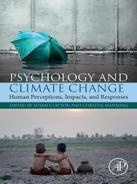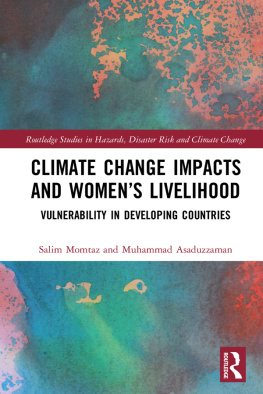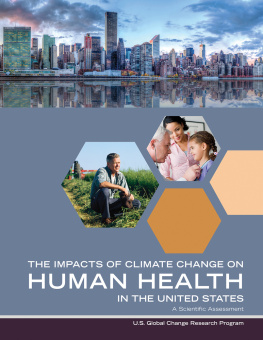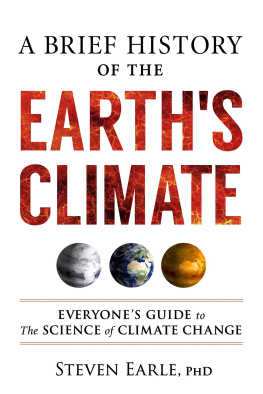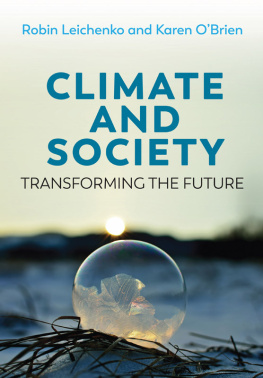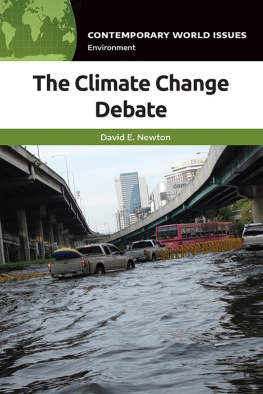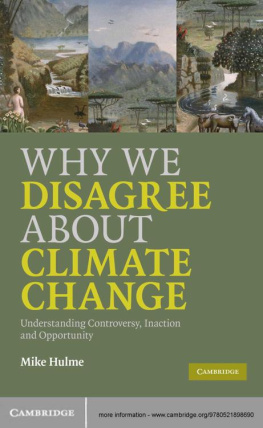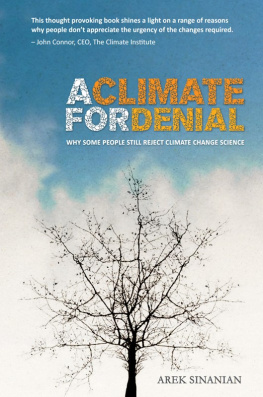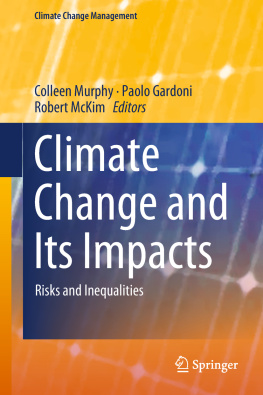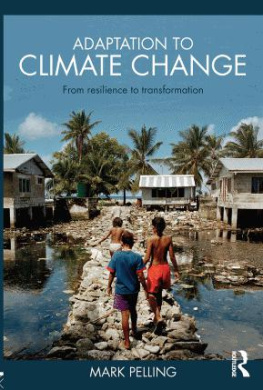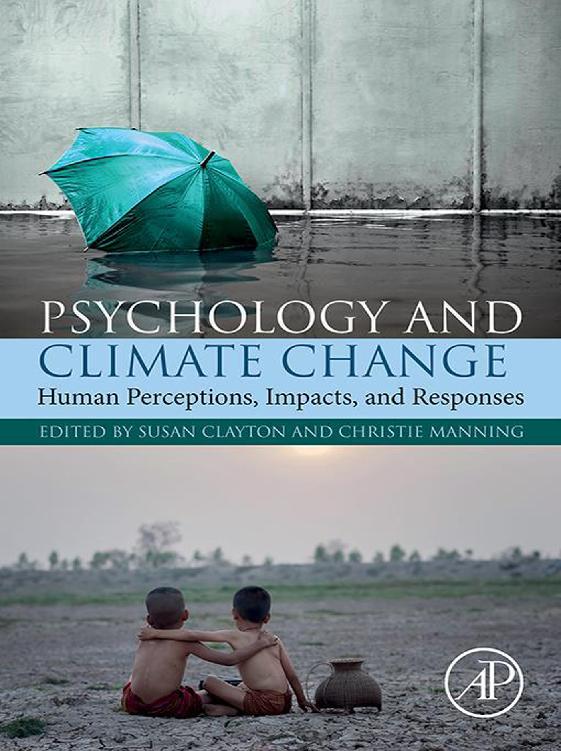Christie Manning - Psychology and Climate Change
Here you can read online Christie Manning - Psychology and Climate Change full text of the book (entire story) in english for free. Download pdf and epub, get meaning, cover and reviews about this ebook. year: 2018, publisher: Academic Press, genre: Politics. Description of the work, (preface) as well as reviews are available. Best literature library LitArk.com created for fans of good reading and offers a wide selection of genres:
Romance novel
Science fiction
Adventure
Detective
Science
History
Home and family
Prose
Art
Politics
Computer
Non-fiction
Religion
Business
Children
Humor
Choose a favorite category and find really read worthwhile books. Enjoy immersion in the world of imagination, feel the emotions of the characters or learn something new for yourself, make an fascinating discovery.
- Book:Psychology and Climate Change
- Author:
- Publisher:Academic Press
- Genre:
- Year:2018
- Rating:5 / 5
- Favourites:Add to favourites
- Your mark:
Psychology and Climate Change: summary, description and annotation
We offer to read an annotation, description, summary or preface (depends on what the author of the book "Psychology and Climate Change" wrote himself). If you haven't found the necessary information about the book — write in the comments, we will try to find it.
Psychology and Climate Change: Human Perceptions, Impacts, and Responses organizes and summarizes recent psychological research that relates to the issue of climate change. The book covers topics such as how people perceive and respond to climate change, how people understand and communicate about the issue, how it impacts individuals and communities, particularly vulnerable communities, and how individuals and communities can best prepare for and mitigate negative climate change impacts. It addresses the topic at multiple scales, from individuals to close social networks and communities. Further, it considers the role of social diversity in shaping vulnerability and reactions to climate change.
Psychology and Climate Change describes the implications of psychological processes such as perceptions and motivations (e.g., risk perception, motivated cognition, denial), emotional responses, group identities, mental health and well-being, sense of place, and behavior (mitigation and adaptation). The book strives to engage diverse stakeholders, from multiple disciplines in addition to psychology, and at every level of decision making - individual, community, national, and international, to understand the ways in which human capabilities and tendencies can and should shape policy and action to address the urgent and very real issue of climate change.
- Examines the role of knowledge, norms, experience, and social context in climate change awareness and action
- Considers the role of identity threat, identity-based motivation, and belonging
- Presents a conceptual framework for classifying individual and household behavior
- Develops a model to explain environmentally sustainable behavior
- Draws on what we know about participation in collective action
- Describes ways to improve the effectiveness of climate change communication efforts
- Discusses the difference between acute climate change events and slowly-emerging changes on our mental health
- Addresses psychological stress and injury related to global climate change from an intersectional justice perspective
- Promotes individual and community resilience
Christie Manning: author's other books
Who wrote Psychology and Climate Change? Find out the surname, the name of the author of the book and a list of all author's works by series.

